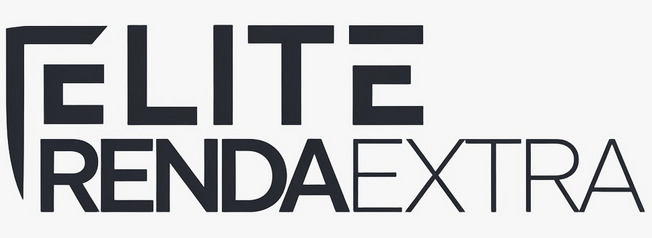Deciding whether to take out a personal loan is a significant financial step, and it’s not one to be taken lightly. These loans can be a useful tool for managing finances, covering unexpected costs, or consolidating debt, but they also come with responsibilities and potential drawbacks.
Understanding the full picture – both the advantages and disadvantages – is crucial before you sign on the dotted line. This guide aims to provide a comprehensive overview to help you determine if a personal loan aligns with your financial situation and goals.
Understanding What a Personal Loan Entails
At its core, a personal loan is an amount of money borrowed from a lender, such as a bank, credit union, or online lending platform, that you agree to pay back over a set period, known as the term. Most personal loans are “unsecured,” meaning they don’t require collateral like your car or house. Instead, lenders typically base their decision on your creditworthiness, income, and debt-to-income ratio.
These loans usually come with a fixed interest rate, meaning your monthly payment amount remains the same throughout the loan’s life. This predictability can be very helpful for budgeting. The funds from a personal loan can be used for a wide variety of purposes, offering considerable flexibility to the borrower.
The Upsides: Advantages of Personal Loans
Personal loans offer several benefits that can make them an attractive option in various financial scenarios.
Versatility in Use
One of the primary appeals of personal loans is their flexibility. Unlike mortgages or auto loans, which are tied to specific purchases, the funds from a personal loan can typically be used for almost anything. Common uses include:
- Debt consolidation (e.g., paying off high-interest credit cards)
- Home improvements or repairs
- Medical expenses
- Major purchases (e.g., appliances, electronics)
- Emergency expenses
- Financing a wedding or other significant life event
Fixed Interest Rates and Predictable Payments
Most personal loans come with a fixed interest rate. This means your interest rate won’t change over the life of the loan, resulting in consistent, predictable monthly payments. This makes budgeting much easier compared to variable-rate loans where payments can fluctuate.
Potential for Lower Interest Rates (Compared to Credit Cards)
If you have a good credit score, you may qualify for a personal loan with an interest rate significantly lower than the average credit card APR. This can make personal loans a more cost-effective way to borrow money, especially for larger amounts or when consolidating high-interest credit card debt.
No Collateral Required (Typically)
As mentioned, most personal loans are unsecured. This means you don’t have to put up an asset like your home or car as collateral. If you struggle to make payments, the lender can’t automatically seize a specific asset, although they can still pursue legal action to recover the debt, which could eventually lead to asset seizure or wage garnishment.
Streamlined Application and Funding Process
Many lenders, especially online ones, offer a quick and straightforward application process for personal loans. You can often get pre-qualified without impacting your credit score, and if approved, funds can sometimes be disbursed within a few business days, or even sooner.
The Downsides: Disadvantages and Risks of Personal Loans
While personal loans have their advantages, it’s equally important to consider the potential drawbacks.
Interest Costs and Fees
Even with a relatively low interest rate, you’ll still pay interest over the life of the loan, increasing the total cost of borrowing. Additionally, some personal loans come with fees, such as:
- Origination fees: A percentage of the loan amount (typically 1% to 8%) deducted from the loan proceeds before you receive them.
- Late payment fees: Charged if you miss a payment deadline.
- Prepayment penalties: Some lenders charge a fee if you pay off the loan early (though this is becoming less common).
Always read the fine print to understand all associated costs.
Impact on Your Credit Score
Taking out a personal loan can affect your credit score in several ways. Initially, the hard inquiry when you apply can slightly lower your score. While making timely payments can help improve your credit over time, missed or late payments will significantly damage it. Additionally, a new loan increases your overall debt burden, which can temporarily lower your score until you establish a positive payment history.
Risk of Accumulating More Debt
A personal loan is still debt. If you’re not careful, or if you use the loan for non-essential spending, you could find yourself in a worse financial situation. It’s crucial to have a clear plan for repayment and to ensure the loan serves a productive purpose, like reducing overall interest costs through debt consolidation.
Potential for Scams
The lending market, especially online, can attract scammers. Be wary of lenders who guarantee approval regardless of credit, demand upfront fees before disbursing the loan, or pressure you into signing quickly. Always research lenders thoroughly and look for reviews and official registrations.
When Might a Personal Loan Be a Smart Move?
A personal loan can be a sensible choice in specific situations:
- Consolidating High-Interest Debt: If you have multiple credit card balances with high APRs, a personal loan with a lower interest rate can consolidate these into a single, more manageable payment and potentially save you money on interest.
- Financing Necessary Large Purchases or Projects: For essential home repairs, medical procedures not fully covered by insurance, or other significant, necessary expenses, a personal loan can provide the needed funds at a potentially better rate than other options.
- Covering Unexpected Emergencies: If your emergency fund is insufficient to cover an urgent, unavoidable expense (like a major car repair needed for work), a personal loan might be a viable solution.
When Should You Reconsider or Avoid a Personal Loan?
There are also times when a personal loan might not be the best course of action:
- For Discretionary Spending: Using a loan for vacations, luxury goods, or other non-essential items can lead to unnecessary debt. If it’s not a need, it’s generally better to save up for it.
- If You Can’t Comfortably Afford the Repayments: Taking on a loan payment that strains your budget can lead to financial stress and potential default.
- If Your Credit Score is Poor: You might only qualify for loans with very high interest rates and unfavorable terms, making the loan excessively expensive. Focus on improving your credit score first.
- If Better Alternatives Exist: Explore other options before committing to a personal loan (see below).
Comparing Personal Loans to Alternatives
Before deciding, consider how personal loans stack up against other financial tools:
| Option | Pros | Cons | Best For |
|---|---|---|---|
| Personal Loan | Fixed rates, flexible use, no collateral (usually) | Interest, fees, potential credit impact | Debt consolidation, planned large expenses, emergencies |
| 0% APR Credit Card | Interest-free period for purchases or balance transfers | High APR after intro period, transfer fees, temptation to overspend | Short-term borrowing, small debt consolidation if paid off quickly |
| Home Equity Loan / HELOC | Potentially lower interest rates, larger loan amounts | Uses home as collateral (risk of foreclosure), closing costs | Major home improvements, large, long-term financing needs |
| Savings | No debt, no interest paid | Takes time to accumulate, depletes emergency fund if used | Non-urgent purchases, building financial security |
| Borrowing from Friends/Family | Potentially no or low interest, flexible terms | Can strain relationships if not handled carefully | Small, urgent needs when other options are unavailable (with clear agreement) |
Making an Informed Decision: Key Steps
If you’re leaning towards a personal loan, follow these steps to ensure you make the best choice for your circumstances:
- Assess Your Needs and Budget: Clearly define why you need the loan and exactly how much you need to borrow. Over-borrowing increases your debt unnecessarily. Calculate if you can comfortably afford the monthly payments alongside your other financial obligations.
- Check Your Credit Report and Score: Knowing your credit standing will give you an idea of the interest rates you might qualify for. Dispute any errors on your report.
- Shop Around and Compare Offers: Don’t accept the first offer you receive. Compare rates, fees, and terms from multiple lenders, including banks, credit unions, and online platforms. Many online lenders offer pre-qualification with a soft credit check, which doesn’t affect your score.
- Read the Fine Print Carefully: Understand all terms and conditions, including the APR (Annual Percentage Rate, which includes interest and some fees), origination fees, late payment penalties, and any prepayment penalties.
- Borrow Only What You Need: Resist the temptation to borrow more than necessary, even if you’re approved for a higher amount.
- Have a Repayment Plan: Make sure you have a solid plan for making timely payments to avoid damaging your credit and incurring extra fees.
Final Thoughts: Is It the Right Path for You?
A personal loan can be a valuable financial instrument when used responsibly and for the right reasons. It can help you manage existing debt more effectively, finance important purchases, or navigate unexpected financial hurdles. However, it’s crucial to approach this decision with careful consideration of both its benefits and potential pitfalls.
By thoroughly evaluating your financial situation, understanding the loan terms, and comparing your options, you can make an educated choice. For many, carefully considering the pros and cons of personal loans is the first step towards sound financial decision-making and achieving their financial objectives without falling into a debt trap.



